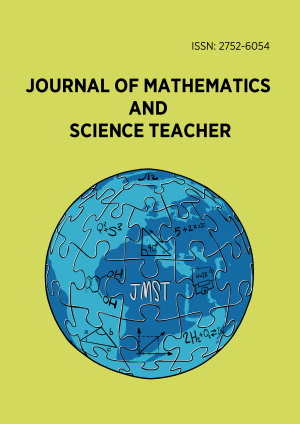Abstract
The paper dwells on the contributions of APOS theory to the development of teaching and learning of mathematics in school. APOS is an acronym for action, process, object, and schema. The theory emerges as an extension to constructivism but with a more focused and robust learner-centered approach to the teaching and learning of mathematics. Proponents of the theory believed that learning occurs initially as an action or activity in learners’ cognitive settings, independent of learners’ environment, triggered by cognitive coherence, then it is transformed to process, where learner now waits for internalization of the earlier activity, preparatory to the occurrence of learning. At object level, learner now considers what has been learnt earlier to have been fully internalized into mathematical object(s). Lastly, at schema level, the object learnt is assumed to have been embedded in the learners’ schema–a cognitive structure formed as a result of accumulated learning experience, and a complete mental image of what has been learnt is said to have been formed. Against the backdrop of this, the paper looks at how this theory had changed the narrative about teaching and learning of mathematics vis-à-vis the bearing of the theory to other cognitive abilities of the learner such as intelligence and creativity. In the end, the paper suggests the application of APOS theory in teaching and learning mathematics at all levels of learning in Nigeria and beyond.
License
This is an open access article distributed under the Creative Commons Attribution License which permits unrestricted use, distribution, and reproduction in any medium, provided the original work is properly cited.
Article Type: Review Article
Journal of Mathematics and Science Teacher, Volume 4, Issue 2, 2024, Article No: em058
https://doi.org/10.29333/mathsciteacher/14308
Publication date: 01 Apr 2024
Online publication date: 28 Feb 2024
Article Views: 3088
Article Downloads: 4122
Open Access References How to cite this article
 Full Text (PDF)
Full Text (PDF)